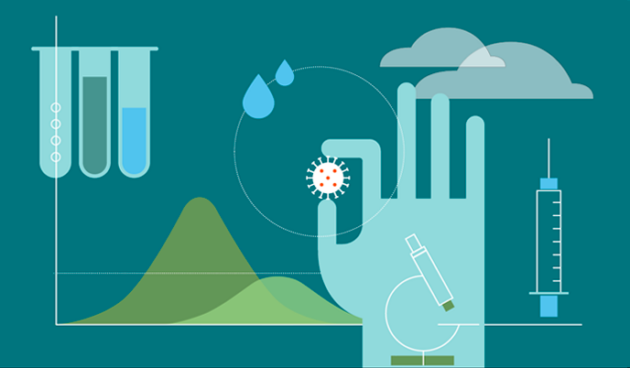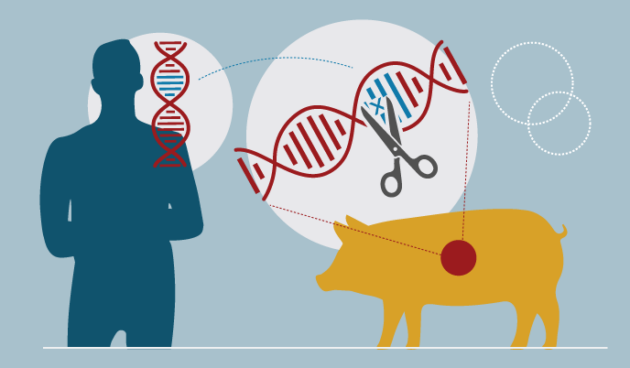Support Transformative Research
Researchers at the UW School of Medicine and Public Health pursue innovative research aimed at improving the ways we identify, treat and prevent diseases like cancer, immune dysfunction and Alzheimer’s disease.
Your support is key to leveraging the benefits of artificial intelligence (AI), data derived from clinical trials and cutting-edge precision medicine such as theranostics and cell/gene therapy to improve health, health equity and patient outcomes.
We invite you to explore some of our current research initiatives. In addition to these, we are doing exciting work in children’s health, geriatric emergency care, salutogenic science and other areas. Please submit the form to request full-length white papers on any or all of these topics.

Addressing Health Disparities
Our interdisciplinary team of researchers is investigating how socioeconomic status, environmental toxins, discrimination, and early life stress contribute to disease.
Marginalized and underserved groups face higher rates of disease and premature death, particularly from heart disease, stroke, obesity, asthma, type 2 diabetes, infectious diseases and dementia. Complex interactions between social and environmental factors, known as the “exposome,” play a central role. Drawing on tools like the Neighborhood Atlas®, created here at UW, researchers are designing new solutions to health inequities affected by exposome factors.

Expanding Clinical Trials
The UW School of Medicine and Public Health is increasing industry-sponsored clinical trials at our academic medical center.
To further serve our patients and increase the trials available to them, we are building strong relationships with industry partners and streamlining our trials infrastructure. We are committed to empowering clinicians to discuss trial options with patients, prioritizing culturally sensitive community-based recruitment and diverse participant representation, and enhancing clinicians’ access to research data. Our goal is to be a top destination nationally for patients seeking clinical trials.

New Treatments for Alzheimer’s Disease
UW’s leading Alzheimer’s experts work to make early detection a reality and test novel treatments in clinical trials.
The UW School of Medicine and Public Health is a world leader in studying the influence of environmental factors on health. Our team of researchers intends to develop imaging and blood-based molecular markers to help doctors make earlier diagnoses of neurodegenerative diseases in those whose environments put them at greater risk. A new, interdisciplinary research program will use artificial intelligence, proprietary animal models and bio-engineered devices/drugs/tissues to develop new treatments for Alzheimer’s and related diseases.

Personalizing Care Through AI
The Wisconsin Initiative for AI in Imaging and Medicine (WI-AIIM) will ensure that precision medicine is accessible to all.
Advances in computing and data science have put troves of imaging and biological data at our fingertips. Linking this data with patients’ clinical data (such as age, gender and cognitive scores) enables researchers to create a powerful resource for characterizing diseases in new ways. The UW School of Medicine and Public Health proposes an umbrella initiative, the Wisconsin Initiative for AI in Imaging and Medicine (WI-AIIM), to support AI innovation, expand AI research efforts and adapt this cutting-edge approach to precision health.

Preparing for Future Pandemics
A new research initiative will help prepare and protect our communities from viral diseases, starting with vulnerable populations.
Since the COVID-19 pandemic, scientists and public health officials have worked to implement sequencing technologies and environmental monitoring innovations for better public health decision-making. Our Initiative for Viral Environmental Sequencing Technologies (INVEST) promises to be a national model for viral disease forecasting, detection and tracking. Based in Wisconsin, INVEST will feature strong partnerships with the Wisconsin State Laboratory of Hygiene, William S. Middleton Memorial Veterans Hospital, UW Hospital and Clinics, local health departments and state agencies.

Theranostics in Cancer Care
UW scientists are researching safer, more effective ways to deliver personalized cancer care.
Radionuclide agents and particle beam radiation treatments offer viable alternatives to traditional radiation therapy, which can produce toxic side effects. Because of their dual therapeutic and diagnostic capabilities, these alternatives are known as theranostics. Imaging of a theranostic agent allows doctors to see how selective that agent is for cancer cells, leading to earlier decisions for maximally effective, safer therapy. UW researchers at the School of Medicine and Public Health are combining theranostics with other treatments such as immunotherapies, an approach that promises to enable the cure of currently incurable cancers.

Transforming Cancer Treatment
To advance studies of cancer’s progression, our researchers are working to genetically engineer a human-sized “personalized porcine cancer model.”
Creation of a porcine model is being led by the genome editing and porcine cloning team at the UW Center for Biomedical Swine Research and Innovation (CBSRI). In initial studies, state-of-the-art medical imaging and gene sequencing will be used to identify disease-related changes in multiple forms of cancer. Gene editing, together with somatic cell nuclear transfer, will then be employed as novel therapeutic strategies to correct changes that cause the disease.
Request Research White Papers
"*" indicates required fields